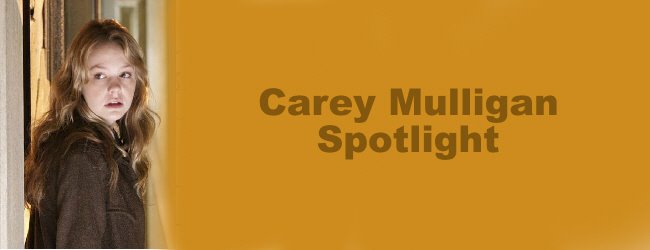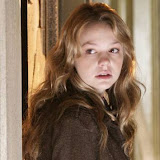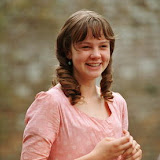Sorry for taking over 10 months to update this page but here is all the news relating the Carey over this time
Wednesday, 13 February 2008
An Austen heroine with a fertile imagination
The central character in 'Northanger Abbey' tends to cast herself in Gothic romances, which makes her fun to watch in Masterpiece Theatre's adaptation.
By Mary McNamara
Los Angeles Times Staff Writer
January 19, 2008
In the good old days, before Jane Austen was a pop star, with assorted websites and an action figure, "Northanger Abbey" was what used to be called a "lesser-known work." "Emma," "Pride and Prejudice," "Sense and Sensibility," even "Persuasion" all could be referred to in casual conversation by those desirous of proving their good taste and general familiarity with English literature. Mention your devotion to "Northanger Abbey," however, and you instantly identified yourself as a Jane Austen geek.
This is strange, since "Northanger Abbey" is the most lighthearted of Austen's novels, a gentle take-down of the popular Gothic novels of the time, with their swooning, sexually endangered heroines, mildly depraved villains and heroes in thigh-high boots.
Catherine Morland is a typical Austen character -- young, innocent, neither classically beautiful nor rich, but with an endearing nature and spirit to compensate for such deficits. She is also a novel-addict, longing for a swoon scene of her own and finding potential intrigue wherever she looks. Especially in the grim and echoing pile of the title, where lives the man she admires and his beloved sister.
All of which makes "Northanger Abbey" particularly perfect for TV adaptation. The second in Masterpiece Theatre's "Complete Jane Austen," "Northanger" lends itself more freely to the term "based on." Thus Andrew Davies (who has done many Austen adaptations, including the 1995 TV production of "Pride and Prejudice," not to mention those Bridget Jones movies) may hew faithfully to the essential story, but he also has a little fun with it.
Instead of being told of Catherine's runaway imagination, we see it in action -- a young woman is thrown into the clutches of a jailer; imagined ruffians attacking a stagecoach; Catherine writhes against a tree, the seduced and seductive prize of a duel. Hot stuff, considering the source. (But then, Mr. Davies also adapted a version of "Fanny Hill" for television.)
If the dream-time Catherine seems a bit more wanton than an Austen character has any right to be, the real-time character makes up for it with her fresh-faced likability.
The young and lovely Felicity Jones plays Catherine as a true innocent and, as Austen would say, the soul of amiability. One of 10 children, Catherine is thrilled when wealthy friends of her parents offer to take her to fashionable Bath, where her wide-eyed, winning ways capture the attention of two men: the quick and quirky Henry Tilney (J.J. Feild) and the overbearing but handsome John Thorpe (William Beck). Each has the requisite sister -- Eleanor Tilney (Catherine Walker) is as gentle and gracious as Isabella Thorpe (Carey Mulligan) is vivacious and, as it turns out, scheming.
Mulligan, last seen in "The Amazing Mrs. Pritchard" and "Bleak House," is a versatile actress who could just as easily (sans blond ringlets) played Catherine. As it is, she's a perfect Austen foil -- pretty, lively and, oh, so fond of our heroine. When she becomes engaged to Catherine's brother but continues her flirtatious ways, we know betrayal is only a matter of time.
But Catherine, defining the role of ingénue as she does, reserves her suspicions for the Tilney household, fearing, and desiring, that in Northanger Abbey's looming towers and locked rooms lurks a secret worthy of any Gothic plot. Like every Austen heroine, she is at last taught the dangers of predisposition, and then, of course, there is a wedding.
Oh, you could poke a few holes in the production -- the 90-minute playing time does not leave much room for mood. Beck's John Thorpe is not polished enough to fool even a young woman for more than a few minutes, while Feild seems to downplay Tilney's rather zany charms. Davies gets a bit carried away with the sexiness -- "there's a young peach ripe for plucking," comments the young roué as he catches sight of Catherine, while Austen no doubt turns in her grave.
And as always happens with a screen adaptation of Austen, much of the author's sharp humor is lost in translation, though mercifully a voice-over preserves such wonderful lines as: "A family of 10 children, of course, will always be called a fine family where there are heads and arms and legs enough for the number, but the Morlands were, in general, very plain."
We also get all the pretty hats and dresses, the candlelit interiors, the sylvan walks and, of course, all that witty dialogue while dancing. So who's going to complain?
"Northanger Abbey" the novel was as fun as it gets for Austen, and the television film quite lives up to the same standard. Which is not to recommend it as a substitute for the novel, which it is now quite the fashion to have read.
http://www.latimes.com/entertainment/news/tv/la-et-northanger19jan19,1,785732,print.story?ctrack=3&cset=true
By Mary McNamara
Los Angeles Times Staff Writer
January 19, 2008
In the good old days, before Jane Austen was a pop star, with assorted websites and an action figure, "Northanger Abbey" was what used to be called a "lesser-known work." "Emma," "Pride and Prejudice," "Sense and Sensibility," even "Persuasion" all could be referred to in casual conversation by those desirous of proving their good taste and general familiarity with English literature. Mention your devotion to "Northanger Abbey," however, and you instantly identified yourself as a Jane Austen geek.
This is strange, since "Northanger Abbey" is the most lighthearted of Austen's novels, a gentle take-down of the popular Gothic novels of the time, with their swooning, sexually endangered heroines, mildly depraved villains and heroes in thigh-high boots.
Catherine Morland is a typical Austen character -- young, innocent, neither classically beautiful nor rich, but with an endearing nature and spirit to compensate for such deficits. She is also a novel-addict, longing for a swoon scene of her own and finding potential intrigue wherever she looks. Especially in the grim and echoing pile of the title, where lives the man she admires and his beloved sister.
All of which makes "Northanger Abbey" particularly perfect for TV adaptation. The second in Masterpiece Theatre's "Complete Jane Austen," "Northanger" lends itself more freely to the term "based on." Thus Andrew Davies (who has done many Austen adaptations, including the 1995 TV production of "Pride and Prejudice," not to mention those Bridget Jones movies) may hew faithfully to the essential story, but he also has a little fun with it.
Instead of being told of Catherine's runaway imagination, we see it in action -- a young woman is thrown into the clutches of a jailer; imagined ruffians attacking a stagecoach; Catherine writhes against a tree, the seduced and seductive prize of a duel. Hot stuff, considering the source. (But then, Mr. Davies also adapted a version of "Fanny Hill" for television.)
If the dream-time Catherine seems a bit more wanton than an Austen character has any right to be, the real-time character makes up for it with her fresh-faced likability.
The young and lovely Felicity Jones plays Catherine as a true innocent and, as Austen would say, the soul of amiability. One of 10 children, Catherine is thrilled when wealthy friends of her parents offer to take her to fashionable Bath, where her wide-eyed, winning ways capture the attention of two men: the quick and quirky Henry Tilney (J.J. Feild) and the overbearing but handsome John Thorpe (William Beck). Each has the requisite sister -- Eleanor Tilney (Catherine Walker) is as gentle and gracious as Isabella Thorpe (Carey Mulligan) is vivacious and, as it turns out, scheming.
Mulligan, last seen in "The Amazing Mrs. Pritchard" and "Bleak House," is a versatile actress who could just as easily (sans blond ringlets) played Catherine. As it is, she's a perfect Austen foil -- pretty, lively and, oh, so fond of our heroine. When she becomes engaged to Catherine's brother but continues her flirtatious ways, we know betrayal is only a matter of time.
But Catherine, defining the role of ingénue as she does, reserves her suspicions for the Tilney household, fearing, and desiring, that in Northanger Abbey's looming towers and locked rooms lurks a secret worthy of any Gothic plot. Like every Austen heroine, she is at last taught the dangers of predisposition, and then, of course, there is a wedding.
Oh, you could poke a few holes in the production -- the 90-minute playing time does not leave much room for mood. Beck's John Thorpe is not polished enough to fool even a young woman for more than a few minutes, while Feild seems to downplay Tilney's rather zany charms. Davies gets a bit carried away with the sexiness -- "there's a young peach ripe for plucking," comments the young roué as he catches sight of Catherine, while Austen no doubt turns in her grave.
And as always happens with a screen adaptation of Austen, much of the author's sharp humor is lost in translation, though mercifully a voice-over preserves such wonderful lines as: "A family of 10 children, of course, will always be called a fine family where there are heads and arms and legs enough for the number, but the Morlands were, in general, very plain."
We also get all the pretty hats and dresses, the candlelit interiors, the sylvan walks and, of course, all that witty dialogue while dancing. So who's going to complain?
"Northanger Abbey" the novel was as fun as it gets for Austen, and the television film quite lives up to the same standard. Which is not to recommend it as a substitute for the novel, which it is now quite the fashion to have read.
http://www.latimes.com/entertainment/news/tv/la-et-northanger19jan19,1,785732,print.story?ctrack=3&cset=true
Subscribe to:
Post Comments (Atom)



No comments:
Post a Comment